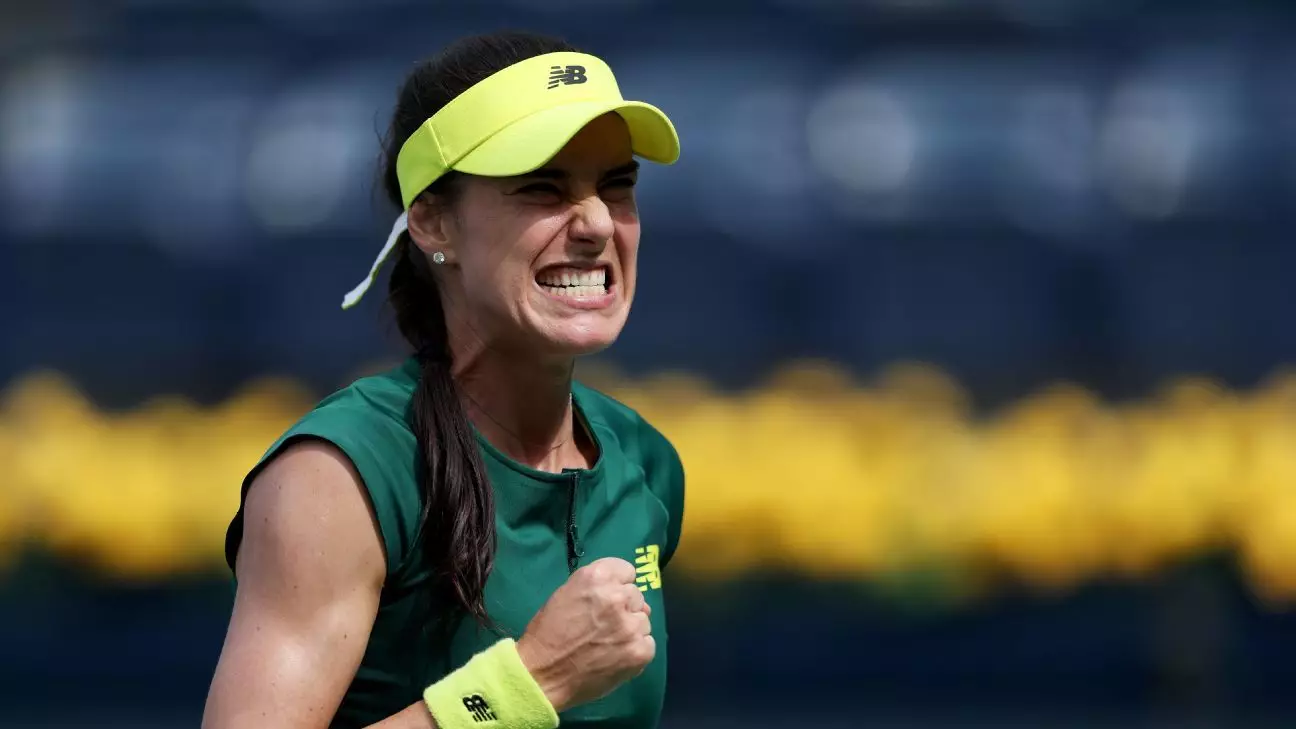Daria Kasatkina, ranked No. 12 in the world and a seasoned tennis champion with eight WTA titles, made headlines recently with a decisive move that extends beyond the tennis court. Announcing her switch in nationality from Russian to Australian, Kasatkina embraces a shift in both her professional career and her personal identity. Her declaration on social media highlighted her joy at receiving permanent residency in Australia, a nation she describes as welcoming—a sentiment few have had the courage to voice amidst the current geopolitical turmoil.
Kasatkina’s statement underscores not only her love for Australia but also the importance of feeling at home, a privilege that has been denied to many amid international strife. In a world where athletes are often seen as mere representatives of their nations, her choice is a profound personal and professional declaration that encourages athletes everywhere to assess what home and representation truly mean to them.
Speaking Out with Courage
Kasatkina has a history of vocally opposing the actions of her home country, particularly in relation to the invasion of Ukraine and the treatment of the LGBTQIA+ community. Her bravery shines even brighter in the context of her coming out as gay in 2022, a revelation that sparked considerable attention and even backlash. A politician’s suggestion that she deserves to be labeled as a “foreign agent” for her stance underscores the bravery it takes to be true to oneself in a repressive environment.
In an interview, Kasatkina stated that sharing her truth felt similar to the release of a heavy burden—the metaphorical “backpack of stones.” Every word resonates deeply with individuals struggling with their identities, suggesting that authenticity can pave the way for personal liberation.
A New Home and a New Beginning
Though her roots are firmly planted in Russia, Kasatkina’s trajectory has shifted significantly since the onset of the conflict in Ukraine. Living and training in Dubai, her life has increasingly diverged from her past. Feedback from Russian fans, who find inspiration in her courage, is a testament to the impact her choices may have on others in similar situations. There’s a poignant irony in her exodus: while she leaves her homeland, she remains a beacon of hope for those still grappling with the societal constraints imposed upon them.
This new chapter for Kasatkina is not just a professional pivot but a reclamation of her narrative. She asks her audience and fans to recognize that moving away from one’s past doesn’t equate to abandoning it. In her acknowledgment of the difficulties involved in her decision, especially considering her family’s continued residence in Russia, she presents a relatable conflict for many individuals faced with similar choices.
Chasing New Dreams
Finally, as Kasatkina gears up for her next match at the Charleston Open, she stands at a crossroads that embodies both ambition and resilience. Her return to competition under the Australian flag symbolizes a transformative journey not just in career terms, but in her identity as a person living authentically. With an impressive record as a two-time semifinalist at Grand Slams and having been ranked as high as No. 8, the tennis world will no doubt be watching—not just for her game, but for what she represents. In a time of uncertainty and division, Daria Kasatkina becomes a figure of hope, embodying courage through the act of being unapologetically herself.

